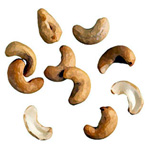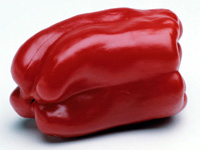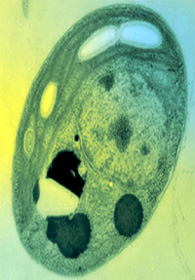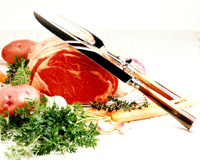Originally published in Issue 3 2005 icon
The Impact of the EU Codex ruling
Well you may by now know that the European Court decided it would uphold the EU law to limit vitamins, with some modifications. It seemed to me to be a compromise ruling to avoid politicians losing face.
A few days before the ruling, however, there was a full meeting of Codex where the decision was made to press on with legislation to restrict the free sale of vitamins, herbs, and indeed all such supplements worldwide. Let me repeat our views at CANCERactive here.

We too believe that restriction/legislation is necessary

We too believe that restriction/legislation is necessary. For example, too many people are making too many claims both for, and against, all manner of supplements especially on the web; it’s all far too misleading.
We believe that the EU legislation was ill conceived, the approval methods sloppy to say the least, and the way the first list of approved supplements was drawn up was amateurish and lacked objectivity and basic scientific understanding.
The EU Advocate General stated that the arbitrary way the list was drawn up was "about as transparent as a black box". Experts believe he was referring to the long list of chemical products from the large pharmaceutical companies that did pass muster at this stage.
We worry that research on certain vitamins, like vitamin D and vitamin K with cancer (as opposed to bones etc) is just in its infancy. All the real discoveries have been in the last three years or so and show - for cancer - that RDA’s are woefully inadequate.
But some vitamins like folate, even vitamin K, might not pass muster in round one and then the onus is on the manufacturers to produce copious scientific research on forms covering reams of paper, at great expense. New legislation might take five years and cost £500,000 before such vitamins at the correct RDA levels were revised and allowed for sale on the High Street. Fortunately this part of the EU law was modified by the European Court.

Fortunately this part of the EU law was modified by the European Court

And who could afford these sorts of sums? Certainly not the small provider of natural products. So we’d be left increasingly with synthetic only products on the High Street and as readers well know we are concerned that research suggests synthetic vitamins are simply not as good as natural.
Fortunately the Court has modified this to allow much simpler application process but it does assume that the approval committee are not as biased or daft as the first lot!
Let me give you some practical examples of the mess we are now in, illustrated by supplements you may need to help with your cancer:
Vitamin E

Cancer Facts
A great number of studies, usually at the 100-200mg levels have shown the effectiveness of vitamin E in the cancer process. icon has covered these. Unfortunately, soil depletion, vegetable and fruit importation etc. means if I start eating vitamin E rich foods tomorrow morning, I’ll be lucky to get to 40 mgs by midnight, making supplementation essential for cancer protection.
There are 4 tocopherols, and 4 tocotrienols. A review of 12 studies on tocotrienols in 2003 in Life Extension showed just how important they were in breast cancer, whilst tocopherols have little effect.
Recent "metastudies" by Collins USA, reviewing 14 studies showed some concerns over taking just one form, a synthetic vitamin E alpha-tocopherol.
Our view: Take mixed tocopherols and tocotrienols.
Post August 1st Ruling
Only one vitamin E is now available for sale. Synthetic alpha tocopherol. Maximum dose 10 mgs.
Sources
Vegetable oils - palm, olive, sunflower, wheatgerm (but to get the RDA you would need about 13 tea-spoons, so it would be very fattening!), green leafy vegetables, egg yolks, nuts, seeds, wholegrain, liver.
Selenium

Cancer Facts
Powerful helper to vitamin E and other anti-cancer (eg glutathione peroxidase) and metabolic processes. Recent US and French antioxidant studies show that it is a very effective anti-cancer agent. But there are no real measures on exact anti-cancer amounts to take. (100 micrograms is normal, 200 micrograms may well be upper limit).
It also helps detox the body of heavy metals like mercury. Best absorbed is selenium in yeast or methionine format. In US research it was shown to be very hard to take in the optimal daily allowance by diet alone.
Post August 1st Ruling
Selenium is on the approved list. But in its "naked" state only, so yeast from selenomethionine versions not approved. The RDA is about 60-70 mgs, probably nowhere near enough in the cancer fight.
Sources
Cracking brazil nuts is one option, but whole nuts were banned last Christmas by the EU! Also they came from non-selenium rich areas. The shelled nuts or bags originally have more selenium, but lose it after exposure to light. Try fish, crab, oysters, cashews, pulses and kidney beans.
Vitamin C

Cancer Facts
Linus Pauling, the pioneer of vitamin C, recommended 4-10 gms per day if you were ill. It seems excessive, but vitamin C is vital, and our poor diets are seeing a decline. You also need it regularly throughout the day as it is a water-soluble and washes through you in about three hours.
Large doses can be very acidic on the stomach and it is far safer and gentler to take ester-C. Best with bioflavenoids.
Post August 1st Ruling
Ester C banned. RDA 40 mgs-far too low to do anything as US research on cancer in China proved.
Sources
Red peppers then berries; then a long way behind: citrus fruits, kiwis.
Vitamin A / Beta-Carotene

Cancer Facts
The jury is still out on vitamin A; research rarely totally conclusive. Retinoids, from animal sources, are the pre-formed version of vitamin A.
Carotenoids and beta-carotene are the precursors to vitamin A: they do have clear research on their benefits.
Vitamin A in excess can cause liver problems, which is why people recommend beta-carotene. But smokers and people working with asbestos should not take beta-carotene as there is clear research indicating it increases cancer-risk.
Post August 1st Ruling
Pro vitamin A banned.
Sources
Vitamin A is in cod liver oil, eggs, dairy, liver and other organs.
For beta-carotene: We are always concerned about synthetic vitamins so at icon we recommend Chlorella (300 times the concentration of beta-carotene of a carrot) and it is all natural.
Other sources: Red peppers, carrots, cherries, apricots, watermelon, sweet potatoes, green leafy vegetables.
Zinc

Cancer Facts
Synergistic with vitamin E and C. Important in synthesis of DNA/RNA. Deficiency is shown by white ’flecks’ in your nails. Also involved in a great many enzymes and metabolic processes, antibodies and white cells.
Post August 1st Ruling
Allowed in pure mineral form only. Twenty or more forms, zinc compounds, more easily absorbed or more useable by the body, are now banned.
Sources
Optimal daily levels are about 15 mgs. Zinc is plentiful and found in red meat, poultry, fish and seafood, egg yolks, nuts, seeds, dairy. In pulses, the phytates limit its absorption; and the fibre in whole grains can have a similar effect. Vegetarians have to ensure they get adequate levels. Alcohol reduces levels.
Magnesium

Cancer Facts
40 per cent people are deficient in magnesium - US research recommended supplementation in absorbable compound form. Used in every cell of the body. Helps operate the sodium/potassium pump on cells. Involved with over 300 enzymes. It is crucial to the mitochondria, metabolic processes and energy production.
Post August 1st Ruling
Now only available in pure mineral form. More that 30 compound forms banned.
Sources
Nuts (especially cashews and almonds), greens, pulses, baked potatoes, whole grains, seafood and Epsom Salts (or is that now banned too?)